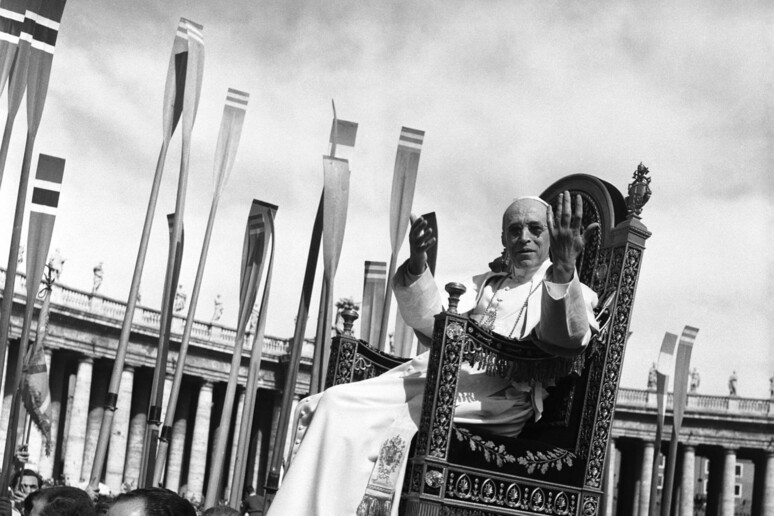Pope Pius XII, the head of the
Catholic Church during World War II, knew about the Holocaust, a
researcher has said on the basis of a letter found in the
Vatican Archives.
Pius XII has come under fire from some historians for not
speaking out about the Nazi death camps, while others have
argued he secretly worked in silence to save the lives of many
Jews.
The letter, which has been published by daily newspaper Il
Corriere della Sera, was written by a German Jesuit, Father
Lothar Koenig, to Pius's secretary Robert Leiber.
Dated December 14, 1942, it mentions the daily murder of
thousands of people and refers to Dachau and Auschwitz.
It was found by Giovanni Coco, an archivist for the Vatican's
Apostolic Archives.
"It's a unique case," Coco told Il Corriere della Sera.
"It has enormous value".
ALL RIGHTS RESERVED © Copyright ANSA











